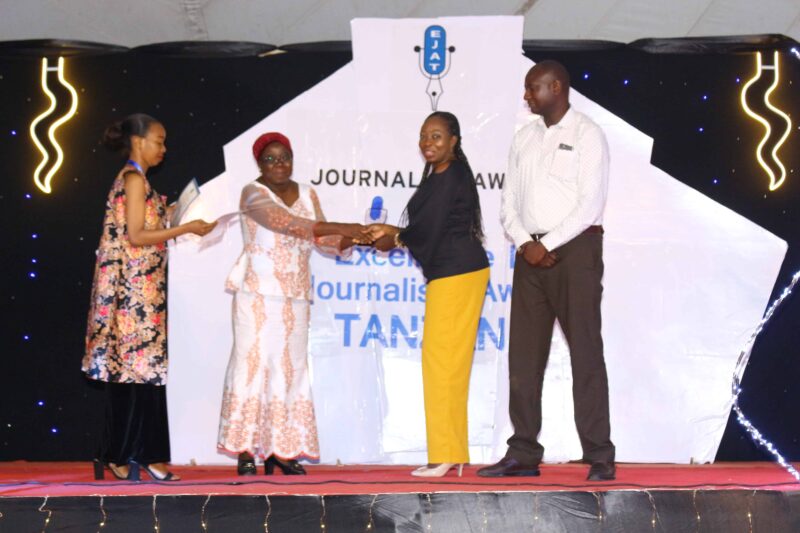Four journalists trained by Internews won first prize in this year’s Excellence in Journalism Awards Tanzania (EJAT).
Joyce Shebe was the first winner in the Data Journalism Category for TV with a story on why girls’ schools have performed better in the ten best schools list in Tanzania than the co-ed or boys’ counterparts. This was her first award as a journalism practitioner in 20 years. “Data journalism training with Internews has really raised my status as a professional,” she said. Joyce Shebe, who is Chief Editor of Clouds Media, says data journalism enables an ordinary person to understand a comprehensive story more easily.
Another winner, Adrian Mgaya of Mlimani TV who produced a data-driven story on women using hazardous cosmetics despite a government ban, won the award in Safety and Quality of Food, Medicines and Cosmetics Reporting Category. “You can’t cheat with data journalism. It is like science,” said 26-year-old Mgaya who was among the first reporters attending the Data Journalism training at Internews.
Nuzulack Dausen, Co-founder of Nukta Africa, was contracted by Internews to conduct data journalism training and mentoring of journalists. He is delighted that data journalism received the recognition it deserves at EJAT. He believes “In this digital era, data analysis is crucial.”
Yohani Gangway won first prize in the Education Category with a radio program about three street children in Mwanza who were attending primary education while living on the street. His story led the school administration to find a house and other necessities for the pupils. Yohani also came in second in the Data Journalism category with a story on the capacity of government to employ fresh graduates. Yohani, a presenter at Radio SAUT in Mwanza, attended Internews six-week hands-on radio training for university journalism graduates during summer, 2018.
Gaspary Charles from Micheweni Radio in Pemba Island won first prize in the Agriculture and Agri-business Category with a story about a monopoly of the vanilla market that compels famers to sell their produce at a low price. Gaspary also came in top in the Business, Economy and Finance Reporting Category with a program on the Zanzibar Bureau of Standards. The bureau is issuing barcodes through a cumbersome process said to deny small-scale entrepreneurs the opportunity to sell their products to national and international markets. Gaspary credits his victories to attending regular training and mentorship provided by Internews under the Boresha Habari project. “Internews’ training has made us change the way we run our programs. In the past we were running these programs without a focus. In contrast, we now plan, do research, and know exactly what we are going to present,” said Gaspary.
In this year’s EJAT competition, 644 entries were submitted, 81 journalists were nominated for the competition and 40 were awarded prizes.
